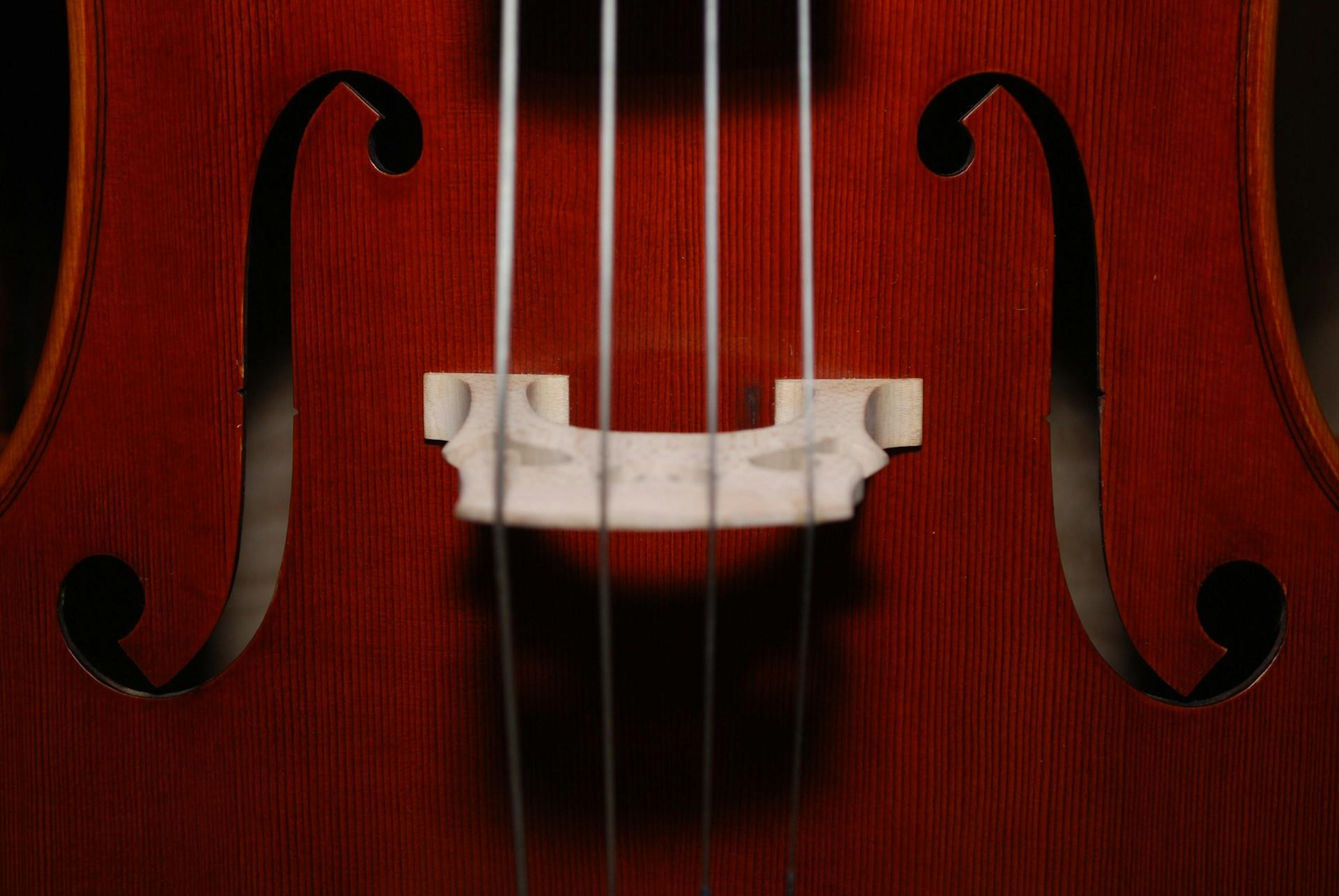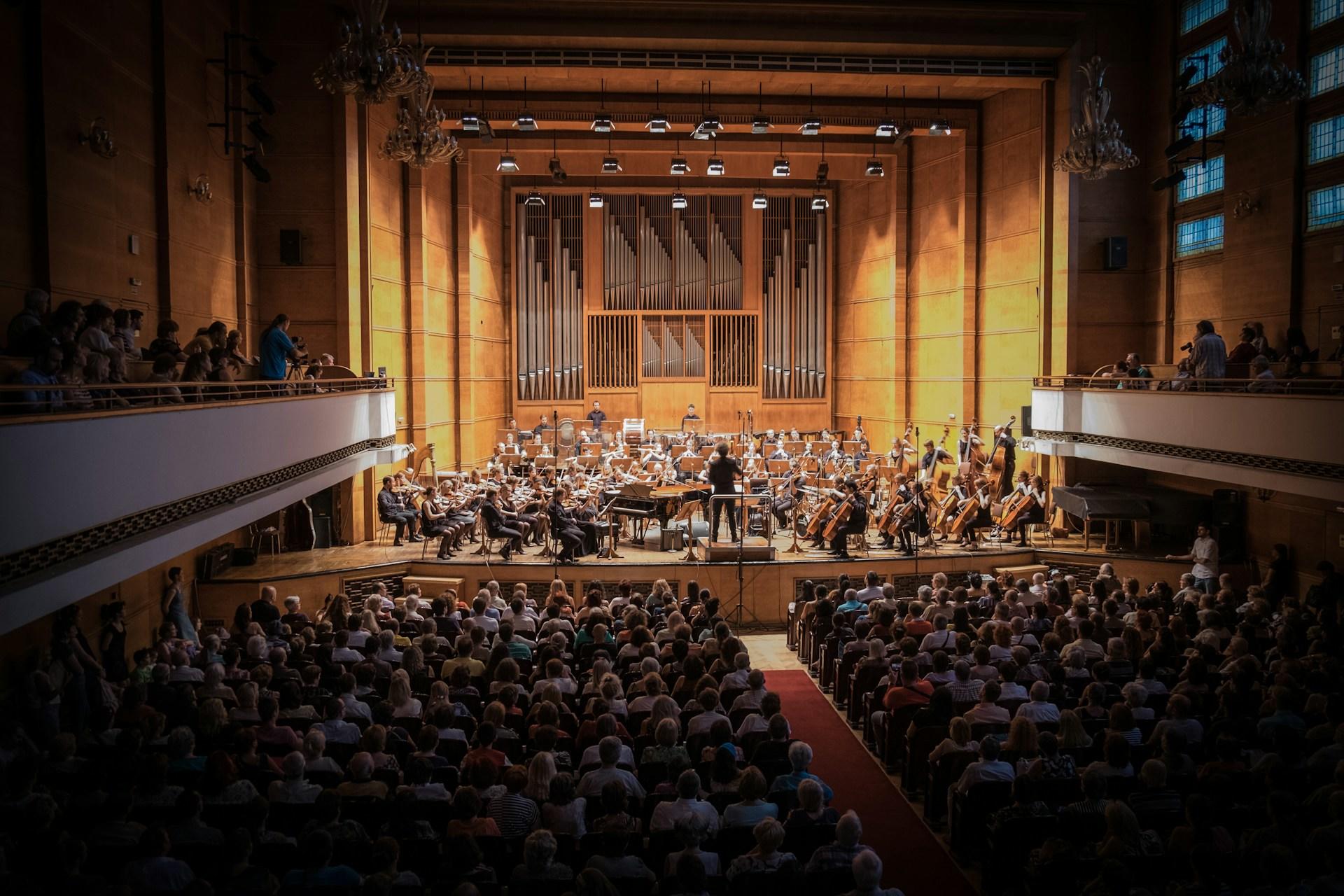Los Angeles, a city steeped in the performing arts, has a rich history that extends beyond the silver screen. It has been a vibrant hub for music, from the jazz and big band era of the early 20th century to the birth of West Coast hip-hop in the 1980s and 1990s. This city has nurtured and launched the careers of legendary artists like Elton John, Linda Ronstadt, and Carole King, adding to its illustrious musical legacy.
It's hardly surprising that people in LA are interested in music, so whether you live there or want to move, studying music and music theory, in particular, is worthwhile.
Let's look at music theory, why you should learn it, and the best places in the City of Angels to study music theory.
Here is a quick summary of the institutions we talk about, but you can find out more if you keep reading.
| Institution | Summary |
|---|---|
| California State University, Northridge (CSUN) | Offers BA, BM, and MM programs with a focus on music theory, including advanced courses in chromatic harmony, modulation, and counterpoint. |
| Colburn School | Offers professional training and degrees through its Conservatory, Music Academy, and Community School, with programs for musicians of all levels. |
| Los Angeles College of Music (LACM) | Contemporary music school with associate, bachelor’s, and diploma programs in performance, production, and songwriting. |
| Musicians Institute (MI) | Offers hands-on learning in contemporary music, with degrees in performance, production, and audio engineering. |
| The Harmony Project | A nonprofit providing low-cost or free community-based music education to underserved communities in and around LA. |
| UCLA Herb Alpert School of Music | Provides a broad music education, including classical, contemporary, and global music traditions, with core music theory courses. |
| University of Southern California (USC) - Thornton School of Music | Prestigious school offering comprehensive programs in music theory, including harmony, counterpoint, ear training, and advanced music theory. |

How Do You Define Music Theory?
Music theory is the science behind music. While our ears can tell us if we like a song, music theory can explain why we like it and why certain parts of the music evoke certain emotions.
Music theory includes the study of pitch and how high or low a note sounds. Pitch is more than just frequency, though. Pitch forms the foundation of scales and intervals, the order of notes, and how far apart notes are in pitch.
Music theory also examines harmony, how different notes interact when played simultaneously, and the rhythm or pattern in which notes are played.
It underlines everything musicians do and gives everyone the same framework to work. Additionally, it allows academics to study music, explaining it in terms that anyone with a background in music theory can understand.
Music theory and understanding intervals, chords, and scales will help you to identify them simply by listening to them.
The Benefits of Learning Music Theory
That's all good, but surely you can play and write music without taking a single music theory lesson?
Technically, you can write music without studying music theory. After all, a musician with a good ear for a melody can write music, listening out for what sounds good.
While it's true that a musician with a good ear can compose music without formal training, studying music theory can elevate your compositions. It equips you with the knowledge of what will sound good, the kind of melodies, rhythms, and harmonies that will work well in certain songs, and whether or not it's right for the genre.
This practical knowledge can inspire and motivate you to create music that resonates with your audience.

As mentioned, music theory allows academics and musicians to speak the same language. For example, session musicians can benefit significantly from a profound knowledge of music theory, as it will enable them to show up to a session and almost immediately play whatever they've been asked to perform.
University of Southern California (USC) - Thornton School of Music
The Thornton School of Music at USC is among the most prestigious music schools in the United States and the world.
The school taught musicians and composers like John Williams, Herb Alpert, and James Horner.

The undergraduate music program includes harmony, counterpoint, ear training, and musical analysis courses. Many of these core music theory classes are required for any student majoring in music.
Advanced music theory courses also cover 20th-century music theory, post-tonal analysis, and counterpoint.
There are also programs for graduates.
USC's Thornton School of Music is a good option for students looking for a comprehensive and academically rigorous music theory education within a formal degree program.
Of course, this isn't the only college in the United States offering these kinds of courses, and there are plenty of places to study music theory in Chicago if you're looking for something in the Midwest.
Colburn School
Colburn School is one of the best-performing arts schools in the United States. It is divided into various divisions, including the Colburn Conservatory of Music, Colburn Music Academy, and Community School of Performing Arts.
The conservatory offers professional training and undergraduate and graduate degrees. Admission to the Colburn Conservatory of Music is highly competitive and is for very talented musicians seeking degrees in music performance.
The music academy is a pre-college program for young musicians preparing for advanced studies or professional music careers.
The community school is for all ages and levels and provides lessons and courses in music, dance, and theater. This option is more accessible for those interested in the arts but not pursuing a career in them.
Musicians Institute (MI)
The Musicians Institute (MI) is a contemporary music school in Hollywood. It offers various programs and degrees, focusing on hands-on learning, industry connections, and modern music technology.
It's a good option for aspiring musicians, producers, audio engineers, and other roles in the music business.
Performance certificates, associate degrees, and bachelor's degrees are available, with specializations for specific instruments like guitar, bass, drums, keyboards, or vocals.
MI also offers online courses and programs, allowing students to study contemporary music, audio engineering, and music business from anywhere in the world.


Los Angeles College of Music (LACM)
The Los Angeles College of Music (LACM) is in Pasadena, California. This contemporary music school offers a range of specialized programs focusing on music performance, production, songwriting, and the music industry.
Like the Musicians Institute, LACM adopts a hands-on, immersive teaching approach.
There are associate's, bachelor's, and diploma programs in various areas, such as jazz studies, composing for visual media, and the areas we mentioned earlier.
The benefits of LACM are the small class sizes, performance opportunities, and the interdisciplinary nature of all its programs.
California State University, Northridge (CSUN)
California State University, Northridge (CSUN), is about 25 miles northwest of downtown LA. The Department of Music is in the Mike Curb College of Arts, Media, and Communication.
The Bachelor of Arts (BA) in Music and the Bachelor of Music (BM) are both degree programs that include music theory courses and chances for students to learn more about how music works.
For example, the introductory music theory courses cover basic tonal harmony, intervals, scales, chords, and diatonic harmony.
Later and more advanced courses cover chromatic harmony, extended chords, modulation, and counterpoint.
There's also the Master of Music (MM) in Composition or Music Education, which allows students more opportunities to study advanced analytics techniques and Schenkerian analysis.
Find out more about the CSUN Jazz "A" Band here.
UCLA Herb Alpert School of Music
UCLA Herb Alpert School of Music is part of one of the top public universities in the United States and around the world.
Their music programs offer a well-rounded education with classical, contemporary, and global music traditions, making it great for students from any musical background.
Music theory is part of the broader music curriculum. Students are taught about harmony, counterpoint, form, aural skills, and modern and contemporary music theory.
Undergraduate students must take core music theory courses, and options are available for learning about jazz theory, ethnomusicological approaches to theory, and film scoring.
Graduate options are also available, such as the Master of Arts (MA) or Ph.D. in musicology or Composition.
The Harmony Project
The Harmony Project is a nonprofit that provides affordable community-based music theory education to underserved communities in and around LA.
It was founded in 2001 and aims to promote positive development through music with many low-cost and free classes.

Additional Resources for Studying Music Theory
In addition to any of the places we've talked about so far, there are plenty of resources to teach yourself music theory or complement your other music theory courses and programs.
Books like “The Complete Idiot's Guide to Music Theory” and “Music Theory for Dummies” are great if you're completely new to the subject.
Excellent websites like musictheory.net and Teoria are great resources for learning about music theory. Both feature interactive lessons and activities for working on scales, chords, ear training, harmonies, reading music, etc.
Apps like Theory Lessons, Perfect Ear, and Tenuto are recommended if you'd like to learn from your phone or tablet. YouTube channels like 12tone, Michael New, and Adam Neely all have nice videos explaining some of music theory's trickier concepts.
Study Music Theory with Superprof
One of the best ways to learn music theory is with a private tutor. After all, private tutors can focus on what you want to learn, whether it's to help with your studies, prepare you for an exam, or teach you more about music theory.
Music theory tutoring can be more relaxed than academic courses, as the tutor can listen to what you want to learn and adapt your sessions appropriately.
If there's an area of music theory you struggle with, your tutor can spend a session doing a deep dive on something specific. Already understood something? Then, they can move on to the next thing.
On the Superprof website, you can find many of the top music theory tutors in the United States and worldwide.
Many offer the first session for free, so you can always try a few tutors before choosing your favorite one.
Just search for “Music Theory” on the Superprof website today!
















